Discover A History of Europe Key Battles
A History of Europe Key Battles

A History of Europe Key Battles
Author: Carl Rylett
Subscribed: 3,108Played: 71,040Subscribe
Share
© Carl Rylett
Description
A podcast on European conflicts from the perspective of each side to provide an alternative to the traditional national narratives. Going chronologically from the Ancient Greeks onwards I described to some extent how each battle was won or lost by particular decisions, tactics, technology or fortune. But the aim of each main narrative will be to place each battle in the context of the overall history of Europe.
New series on the Interwar Years 1918-1945 begins 18th July 2025
Hosted on Acast. See acast.com/privacy for more information.
245 Episodes
Reverse
A delegation from Ireland meet the British and make an agreement for Irish autonomy but makes a compromise to keep under under the British Crown.The Irish break into two sides, one supporting the treaty, one opposing it and demanding full independence and a republic. The ensuing Irish Civil War left a bitter legacy.Picture: Bombing of the Four CourtsOpening Music: The Charlston. End Music by Nico Vettesewww.historyeurope.netwww.patreon.com/c/historyeuropehttps://podcasts.apple.com/us/podcast/a-history-of-europe-key-battles/id788893946 Hosted on Acast. See acast.com/privacy for more information.
The Irish form a shadow government in opposition to the British, with their own courts and tax collections. Meanwhile, Irish volunteer fighters wage guerilla warfare against the British police force, the Royal Irish Constabulary.Picture: West Connemara Flying ColumnOpening Music: The Charlston. End Music by Nico Vettesewww.historyeurope.netwww.patreon.com/c/historyeuropehttps://podcasts.apple.com/us/podcast/a-history-of-europe-key-battles/id788893946 Hosted on Acast. See acast.com/privacy for more information.
In January 1919 a group of recently elected Sinn Fien MPs gathered in Dublin. There they proclaimed the establishment of an Irish Republic and adopted a ‘Declaration of Independence’, which asserted Ireland’s right to be a sovereign nation. I describe here the background to the Irish people's struggle for independence from the United Kingdom, including the Easter Rising 1916.Picture: Royal Irish ConstabularyOpening Music: The Charlston. End Music by Nico Vettesewww.historyeurope.netwww.patreon.com/c/historyeuropehttps://podcasts.apple.com/us/podcast/a-history-of-europe-key-battles/id788893946 Hosted on Acast. See acast.com/privacy for more information.
An overview of the situation across Europe after World War One. The Treaty of Versailles. The post-war division of territories. The German Revolution and the question of financial reparations.Picture: The heads of the "Big Four" nations at the Paris Peace Conference, 27 May 1919. From left to right: David Lloyd George, Vittorio Orlando, Georges Clemenceau, and Woodrow WilsonOpening Music: The Charlston. End Music by Nico Vettesewww.historyeurope.nethttps://podcasts.apple.com/us/podcast/a-history-of-europe-key-battles/id788893946 Hosted on Acast. See acast.com/privacy for more information.
Conclusion of the Turkish National Struggle 1919-1922. Mustafa Kemal, later known as Ataturk, leads the Turkish Nationalists against the armies of Greece.The Battle of Sakarya River between the Turks and Greeks is a key battle of European history and shapes of the future of their respective countries.Picture: Inferno of SmyrnaMusic: The Charlston Hosted on Acast. See acast.com/privacy for more information.
Turkish National Struggle 1919-1922The Ottoman Empire emerges defeated from World War One. The Entente Allies impose harsh conditions in the armistice whereby the Ottomans lose most of their territory including parts of Anatolia. However, Mustafa Kemal, later known as Ataturk, raises an army to oppose the AlliesPicture: Mustafa Kemal and Turkish soldiers Hosted on Acast. See acast.com/privacy for more information.
As background to the Turkish National Struggle, this episode describes the events in the Caucasus Mountains in World War One, - conflict between Russia, the Ottoman Empire, the Germans, and nationalist groups of Georgians, Armenians and Azerbaijanis.Separately I talk about Greece's involvement in World War One.Picture: Kaiser Wilhelm of Germany and Enver Pasha, Minister of War for the Ottoman Empire Hosted on Acast. See acast.com/privacy for more information.
The Ottoman Empire in World War One - the fights for the Suez Canal, Gaza, Jerusalem and Arabia between the British and TurksPicture: General Allenby enters Jerusalem Hosted on Acast. See acast.com/privacy for more information.
In 1920 the Polish and Soviet Russian armies clashed in a series of battles across a wide area of eastern Europe including Ukraine and Lithuania.The Soviets advanced deep into Poland and reached the gates of Warsaw, with the aims of capturing the city and., more widely, exporting their revolution across Europe.Picture: Polish soldiers in the Battle of Warsaw 1920 Hosted on Acast. See acast.com/privacy for more information.
The Polish Army make a pre-emptive strike against Soviet Russia. They invade the eastern borderlands, and take large amounts of territory, especially in Ukraine, but they fail to break the Russian army. Meanwhile, the Ukrainians attempt to form an administration in KyivPicture: Vladimir Lenin rallying his people to the warIntro Music: The Charlston Hosted on Acast. See acast.com/privacy for more information.
While Western Europe's borders were settled post World War One, fighting still raged elsewhere on the continent. The most significant was the Polish Soviet War, which raised issues such as the clash of ideologies, the Soviets’ attempt to export their revolution, the future of Europe itself.It was a conflict that spanned a large area, from Lithuania and Ukraine in the east to Warsaw in the west.Picture: Josef Pilsudksi with soldiers Hosted on Acast. See acast.com/privacy for more information.
The Bolsheviks face numerous opponents across Russia, and struggle to gain control of all lands of the old Tsarist Empire.The White anti-Bolsheviks make a plan to move on Moscow www.historyeurope.netwww.patreon.com/historyeuropePicture: By Hoodinski - Own work, CC BY 3.0, https://commons.wikimedia.org/w/index.php?curid=16761719 Hosted on Acast. See acast.com/privacy for more information.
Civil War rages across Russia from the north in Murmansk, across the Trans-Siberian Railway to the Far East, as well as in Ukraine and the Caucasus. However, the anti-Bolshevik fail to cooperate effectivelyPicture: Tsar Nicholas II with this family 1913 (murdered by the Bolsheviks in July 1918) Hosted on Acast. See acast.com/privacy for more information.
The new Bolshevik regime quickly gains control of most of former Russia Empire, but meets stiff resistance in the periphery including Finland, the Caucasus and Ukraine.They sign a peace treaty with Germany at Brest-Litovsk and withdraw from the First World WarPicture: Volunteer Army Infantry Hosted on Acast. See acast.com/privacy for more information.
- Introduction to the new series on the Interwar Years- A recap of Russia's involvement in the First World War- The February 1917 Revolution and Provisional Government - Lenin's Bolsheviks seize power in the October Revolution www.historyeurope.nethttps://www.patreon.com/c/historyeurope Hosted on Acast. See acast.com/privacy for more information.
The Battle of Lake Peipus or 'The Battle on the Ice' was fought on 5th April 1242 between a coalition of western crusaders led by the Teutonic Knights against an army from Novgorod, Russia, led by Alexander Nevsky. The conflict was made famous by a Soviet film of 1938 directed by Sergei Eisenstein.This is the fifth and final part of a set of episodes on the Medieval Baltic and the Northern Crusades Hosted on Acast. See acast.com/privacy for more information.
Alexander Nevksy appointed Prince of Novgorod, a Russian city with its own unique culture and proud history.Lead up to Battle of Lake Peipus 1242 Hosted on Acast. See acast.com/privacy for more information.
Livonia in the 12th century was threatened by invasion from all sides; Danes, Swedes, Germans, Poles and Russians. Key events in the episode;1201 - Founding of Riga (capital of modern day Latvia) by Bishop Albert1219 - Capture of Tallinn (capital of modern day Estonia) by Denmark in the legendary battle of Lyndaniss1236 - Defeat of a military order, the Sword Brothers, by a band of Lithuanians at the Battle of Saule Hosted on Acast. See acast.com/privacy for more information.
The Teutonic Order was set up in the Holy Land as a German equivalent of other military orders. The first campaigns in Europe were in response to invitations from the King of Hungary and then a Duke of Poland. And so began their conquest of Prussia Hosted on Acast. See acast.com/privacy for more information.
The geography and early history of the Baltic Sea. Also the beginnings of the Northern Crusades against the Baltic pagans. The first major campaign is the Wendish Crusade of 1147 Hosted on Acast. See acast.com/privacy for more information.







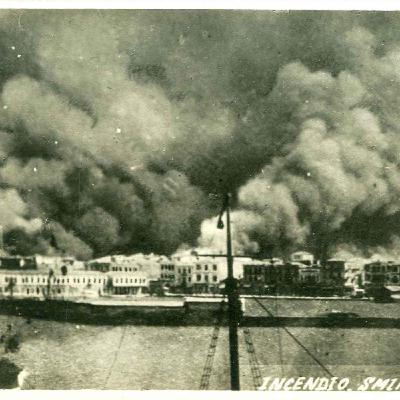


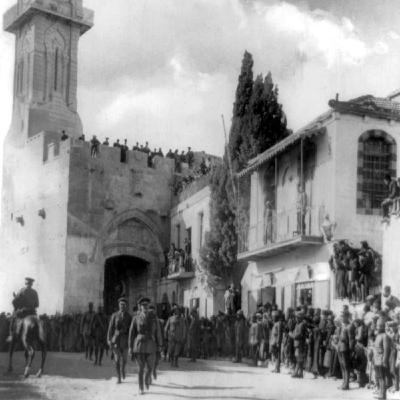
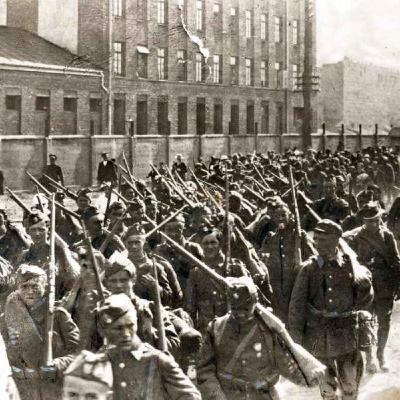
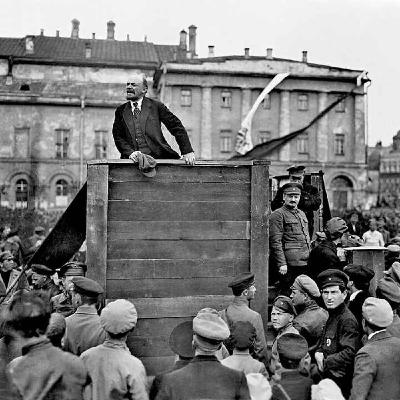
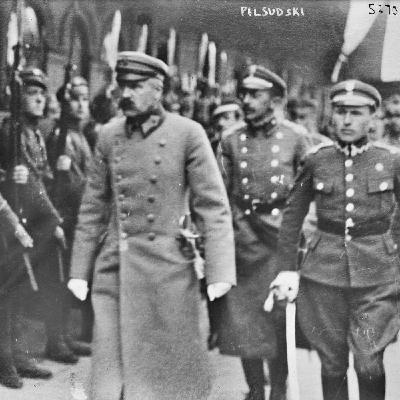
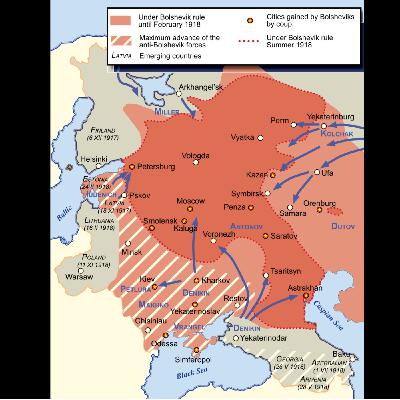
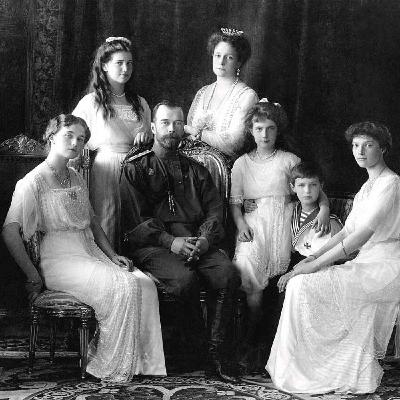
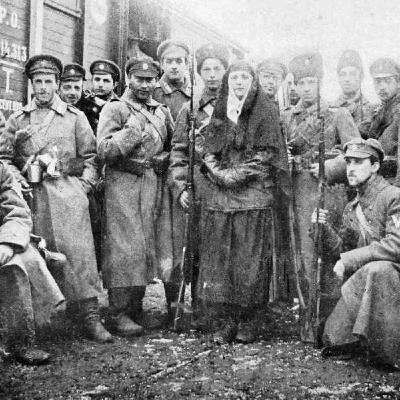
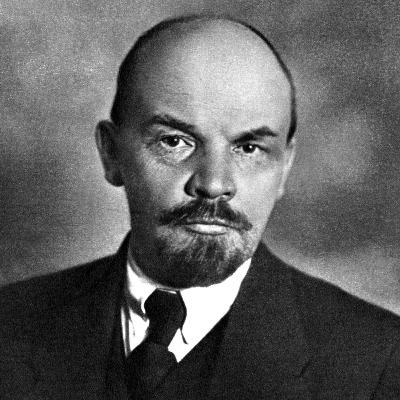
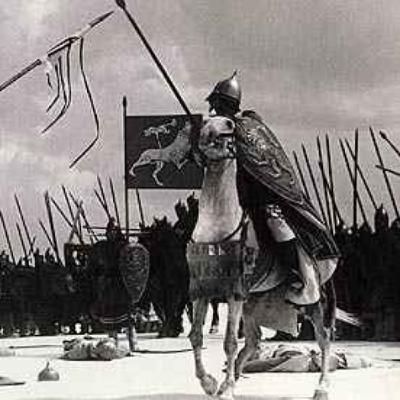

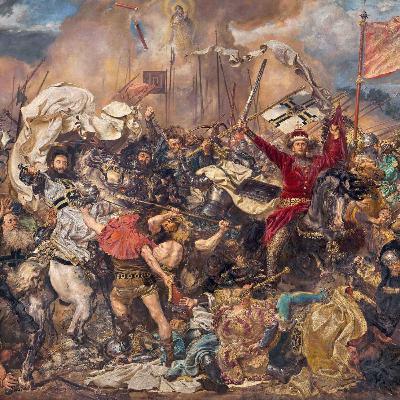
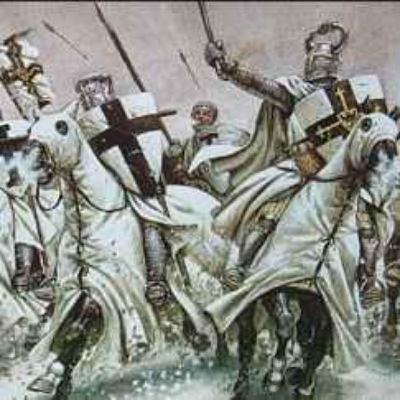
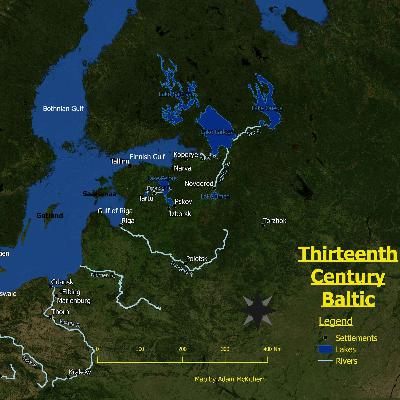



Countries and boundaries are not laid in heaven They're made by men And what men shape they may also choose to reshape
amazing podcast. may God punish the blood thirsty and genocidal race of turks
Carl, It has been a true pleasure exploring this perspective of history with you over the past few years. I can’t than you enough for all your very hard work making such an excellent podcast. I was intrigued that you stopped at WW1 instead of WW2…but I suppose the age of empire was (largely) over with the end of WW1. I really hope you find another history project to turn into a new podcast…leither way it has been a journey and this feels like laying to rest an old friend. You’ll be missed.
Thanks for the podcast!
this dudes voice is like nails on a chalkboard. plus what the hell does the poe delta have to do with the sack of Constantinople and if I hear him swallow one more time I'm going to smash my head against a wall
Excellent. Great pod!!
Whooohooo! More history magic from the one of the crown jewels of history podcast(er)s. If only there was a patreon.com page to send encouragement towards its continued production. BECAUSE IF HE DOESN'T FINISH... well... What's the point of living anymore? Seriously. Try it...from the beginning! No peaky! And to the esteemed narrator... A most heartfelt thanks.
this should be named history of western Europe
You live! God's be praised! Be still my heart... For I had forsaken the conclusion of this epic journey through history.
Is our beloved narrator in okay health? Have been missing this magnificent history podcast since the middle of this summer. I feel as though i recall him mentioning something about a health scare that he was receiving treatment for earlier this year or maybe last. In the unlikely event that they read this i hope the new year smiles on them and, by proxy, the future of my favorite bedtime podcast.
To call this a great podcast is an understatement. Smart, subtle analysis and great descriptions of complex historical forces and the resulting battles.
No battle at Kosovo in 1389? Turks entering Europe not important enough?
one of my favourites, very well done
outstanding content. Excellent delivery. Absolutely fascinating detail. I can't recommend this podcast enough